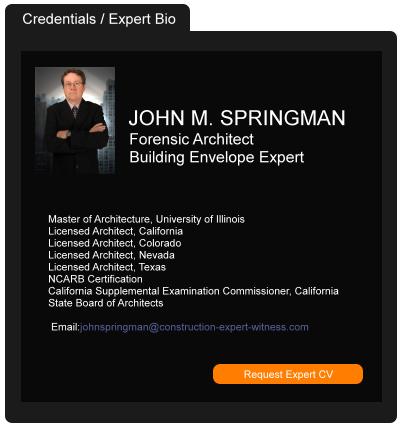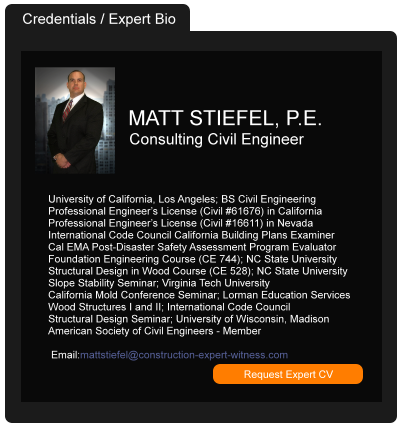Connecticut Builders Right To Repair Current Law Summary:
Current Law Summary: Case law precedent
Building Expert Contractors Licensing
Guidelines Fairfield Connecticut
License required for electrical and plumbing trades. No state license for general contracting, however, must register with the State.
Association Directory
Local # 0780
433 Meadow St
Fairfield, CT 06824
http://www.buildfairfieldcounty.com
Fairfield Connecticut Building Expert 10/ 10
Builders Association of Eastern Connecticut
Local # 0740
20 Hartford Rd Suite 18
Salem, CT 06420
http://www.baec.net
Fairfield Connecticut Building Expert 10/ 10
Home Builders Association of New Haven Co
Local # 0720
2189 Silas Deane Highway
Rocky Hill, CT 06067
http://www.hbanewhaven.com
Fairfield Connecticut Building Expert 10/ 10
Home Builders Association of Hartford Cty Inc
Local # 0755
2189 Silas Deane Hwy
Rocky Hill, CT 06067
http://www.hbahartford.com
Fairfield Connecticut Building Expert 10/ 10
Home Builders Association of NW Connecticut
Local # 0710
110 Brook St
Torrington, CT 06790
http://www.hbanwct.org
Fairfield Connecticut Building Expert 10/ 10
Home Builders Association of Connecticut (State)
Local # 0700
3 Regency Dr Ste 204
Bloomfield, CT 06002
http://www.hbact.org
Fairfield Connecticut Building Expert 10/ 10
Building Expert News and Information
For Fairfield Connecticut
Effectively Managing Project Closeout: It Ends Where It Begins
Newmeyer & Dillion Gets Top-Tier Practice Area Rankings on U.S. News – Best Lawyers List
GAO Sustains Unsupported Past Performance Evaluation and Unequal Discussion Bid Protest
Which Cities have the Most Affordable Homes?
Florida Enacts Sweeping Tort Reform Legislation, Raising Barriers to Insurance Coverage Claims
Comply with your Insurance Policy's Conditions Precedent (Post-Loss Obligations)
Avoiding 'E-trouble' in Construction Litigation
Excess-Escape Other Insurance Provision Unenforceable to Avoid Defense Cost Contribution Despite Placement in Policy’s Coverage Grant
Partner Vik Nagpal is Recognized as a Top Lawyer of 2020
60-Mile-Long Drone Inspection Flight Points to the Future
Quick Note: Insurer Must Comply with Florida’s Claims Administration Act
Effective Zoning Reform Isn’t as Simple as It Seems
Governor Signs AB5 Into Law — Reshaping California's Independent Contractor Classification Landscape
Legislation Update: S-865 Public-Private Partnerships in New Jersey Passed by Both Houses-Awaiting Governor’s Signature
From Both Sides Now: Looking at Contracts Through a Post-Pandemic Lens
At Least 23 Dead as Tornadoes, Severe Storms Ravage South
Contractor’s Assignment of Construction Contract to Newly Formed Company Before Company Was Licensed, Not Subject to B&P 7031
East Coast Evaluates Damage After Fast-Moving 'Bomb Cyclone'
‘Hallelujah,’ House Finally Approves $1T Infrastructure Funding Package
When Is a Project Delay Material and Actionable?
Texas Supreme Court to Review Eight-Corners Duty-to-Defend Rule
Payne & Fears LLP Recognized by U.S. News & World Report and Best Lawyers in 2023 “Best Law Firms” Rankings
Construction Litigation Roundup: “Tear Down This Wall!”
How Small Mistakes Can Have Serious Consequences Under California's Contractor Licensing Laws.
Construction Contracts Fall in Denver
Ten Newmeyer & Dillion Attorneys Selected to the Best Lawyers in America© 2019
Thieves Stole Backhoe for Use in Bank Heist
Big League Dreams a Nightmare for Town
The Difference Between Routine Document Destruction and Spoliation
Just Because I May Be An “Expert” Does Not Mean I Am Giving Expert Testimony
Court Grants Insurer's Motion for Summary Judgment After Insured Fails to Provide Evidence of Systemic Collapse
Manhattan to Add Most Office Space Since ’90 Over 3 Years
Like Water For Chocolate: Insurer Prevails Over Chocolatier In Hurricane Sandy Claim
NYC Condo Skyscraper's Builder Wins a Round -- With a Catch
At Long Last, the Colorado Legislature Gets Serious About Construction Defect Reform – In a Constructive Way
A Court-Side Seat – Case Law Update (February 2022)
Defects, Delays and Change Orders
Affordable Global Housing Will Cost $11 Trillion
Architecture, Robotics, and the Importance of Human Interaction – An Interview with Prof. Kathrin Dörfler
Philadelphia Enacts Commercial Property Assessed Clean Energy (C-PACE) Program
Will a Notice of Non-Responsibility Prevent Enforcement of a California Mechanics Lien?
Insurance Companies Score Win at Supreme Court
Chambers USA 2021 Recognizes Five Partners and Two Practices at Lewis Brisbois
New LG Headquarters Project Challenged because of Height
Chambers USA Names Peckar & Abramson to Band 1 Level in Construction Law; 29 P&A Lawyers Recognized as Leading Attorneys; Six Regions and Government Contracts Practice Recognized
Board of Directors Guidance When Addressing Emergency Circumstances Occasioned by the COVID-19 Pandemic
Ahlers Cressman & Sleight Rated as One of the Top 50 in a Survey of Construction Law Firms in the United States
Construction Contractor “Mean Tweets” Edition
Construction Defect Dispute Governed by Contract Disputes Act not yet Suited to being a "Suit"
New York Court Discusses Evidentiary Standards for Policy Rescission Based on Material Misrepresentation


































































